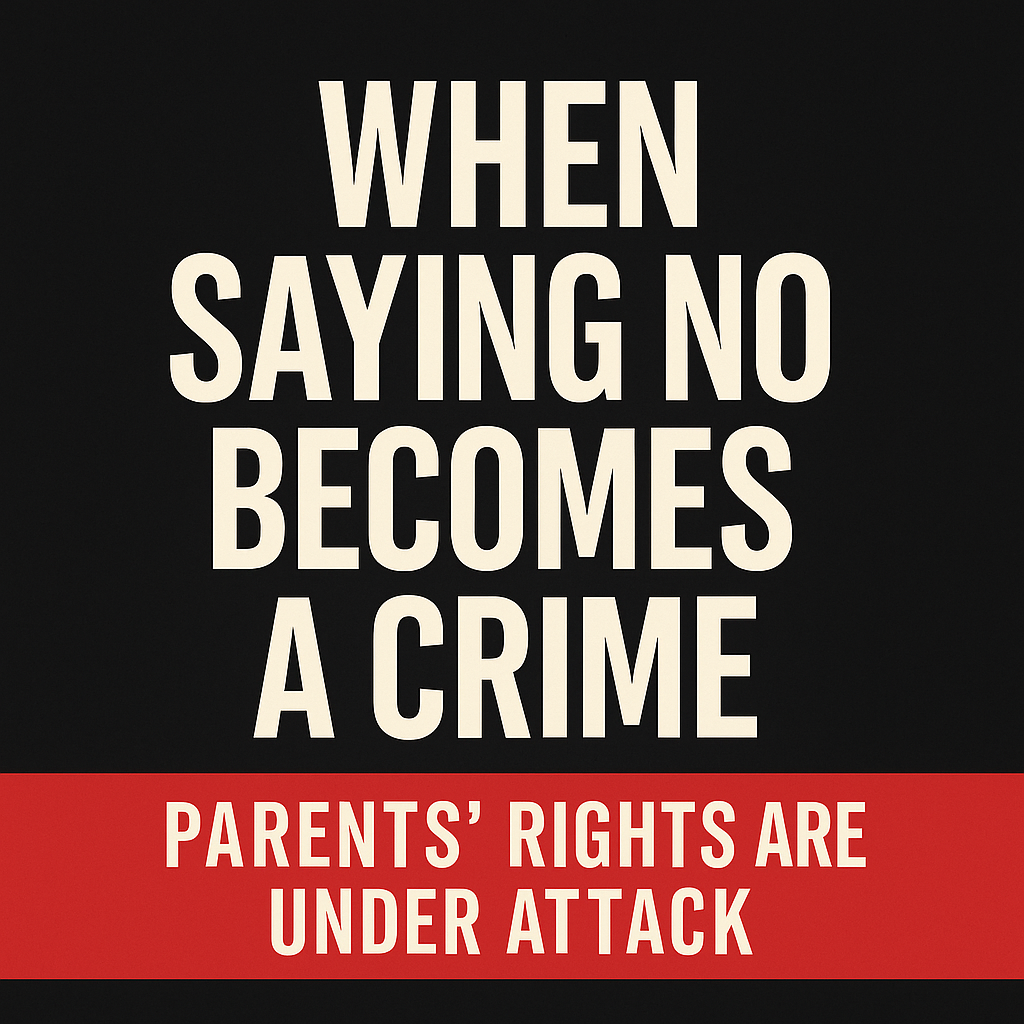
When Saying No Becomes a Crime: How the State Seized a Family Over a Wellness Check
Share
In March 2025, a chilling case out of Fitchburg, Massachusetts sent shockwaves through the country. Ruth Encarnacion and Isael Rivera, a homeschooling couple and parents of five, were arrested after fleeing to Texas when the Massachusetts Department of Children and Families (DCF) sought custody of their children. The reason? A pediatrician filed a neglect report after the parents refused to vaccinate their 9-month-old baby during a routine wellness check.
While the state quickly cited "broader neglect concerns," no evidence has surfaced showing that any of the other four children were neglected or harmed. Yet, DCF moved to seize all five children based on that single doctor's report. Here are the critical points that raise serious concerns about parental rights and government overreach:
1. Was it just the baby, or were all the kids declared neglected?
The initial 51A neglect report only involved the 9-month-old baby. However, the state took custody of all five children without documented evidence of neglect among the older siblings. This expansion of state action raises the question: was the "neglect" simply the parents' decision to refuse a vaccine?
2. Why wasn't the religious exemption enough?
Massachusetts law allows for religious vaccine exemptions, particularly for school and daycare requirements. However, in DCF investigations, a religious exemption is often ignored if the agency claims that refusal poses a "medical risk." In effect, once DCF opened a case, the family's legal exemption was treated as meaningless.
3. When does the state have more rights over a child than the parents?
Legally, the state only supersedes parental rights in cases of proven abuse or neglect. In practice, however, if a state agency claims "neglect" based on subjective standards like vaccine refusal, courts often defer to the state "for the child's protection," even without clear evidence of harm.
4. Was the child sick, or was it just a wellness check?
Reports confirm that the 9-month-old baby was not sick. The visit that triggered the neglect report was a standard wellness appointment. The conflict arose solely because the parents said "no" to vaccines, not because the baby was ill, malnourished, or injured.
5. Were the parents' rights violated?
There is a strong argument that Ruth Encarnacion and Isael Rivera's constitutional rights were violated. Under U.S. law, parents have a fundamental right to direct their children's upbringing, education, and medical care. Seizing custody of their children based solely on a lawful medical decision appears to trample those rights. However, once a neglect case is opened, parents are afforded fewer protections in family court proceedings, leaving them vulnerable to state overreach.
"When government agencies can punish peaceful, lawful choices, every family's freedom is at risk."
Conclusion
This case underscores a dangerous reality: saying "no" to a vaccine during a routine wellness visit — even with a legal exemption — can trigger a full-scale government intervention. It also reveals how easily parental rights can be stripped away under the vague and expanding definition of "neglect."
As the legal proceedings continue, the Fitchburg case stands as a warning to families across America: in today's climate, a single "no" can put your parental rights at risk.
Sources:
Learn More About Parental Rights:
Written by Nana Creamer